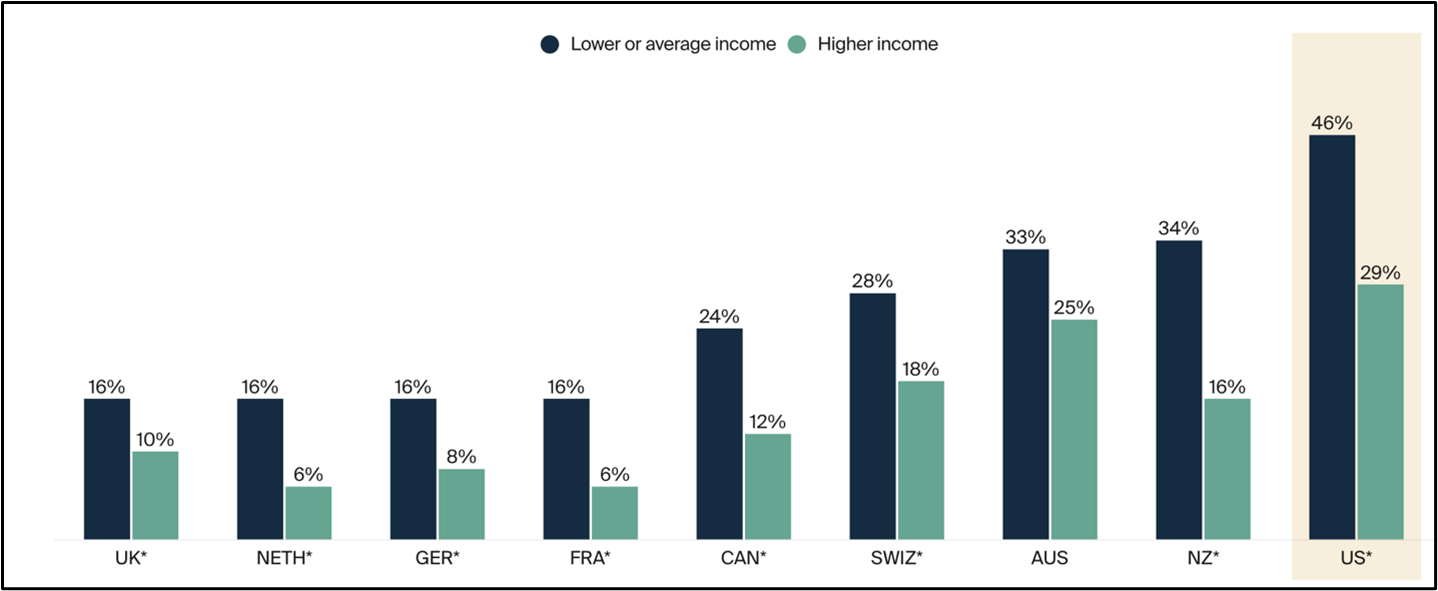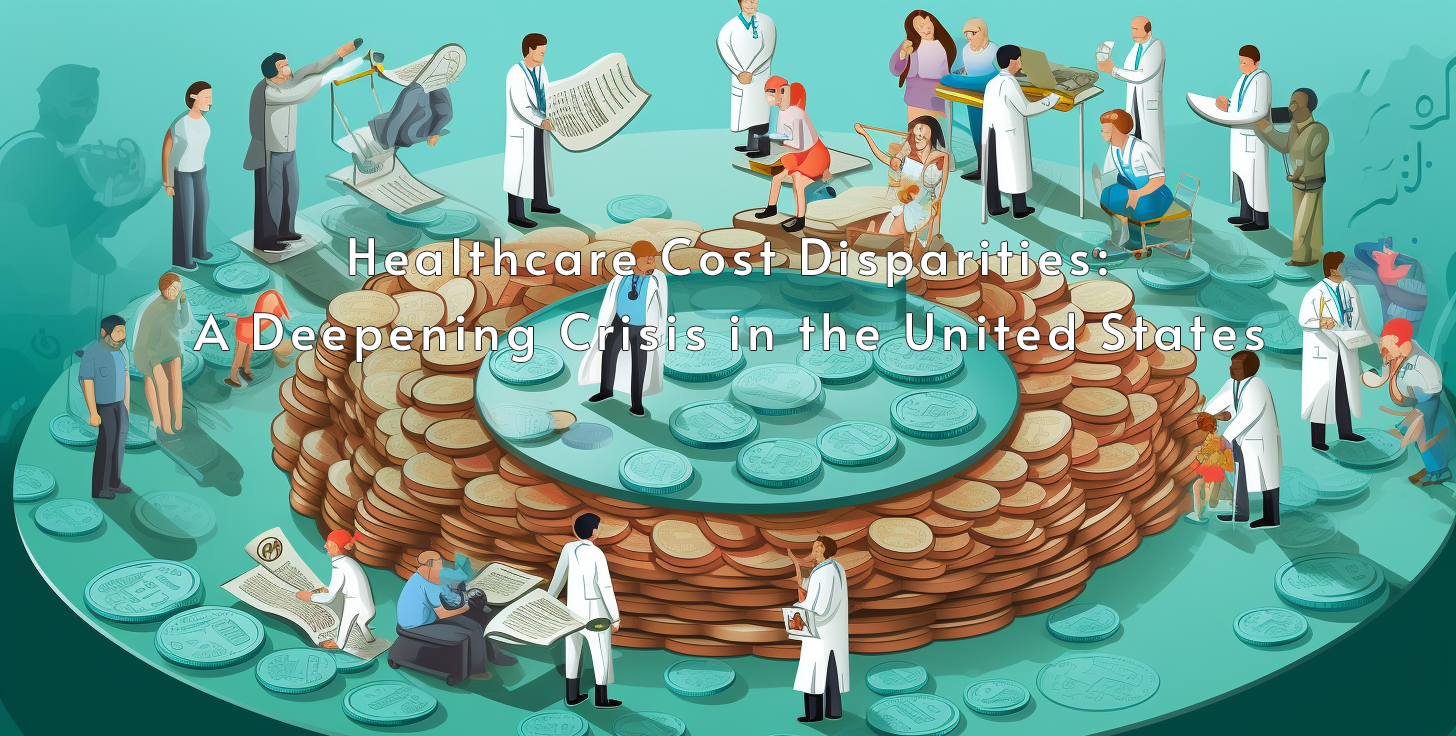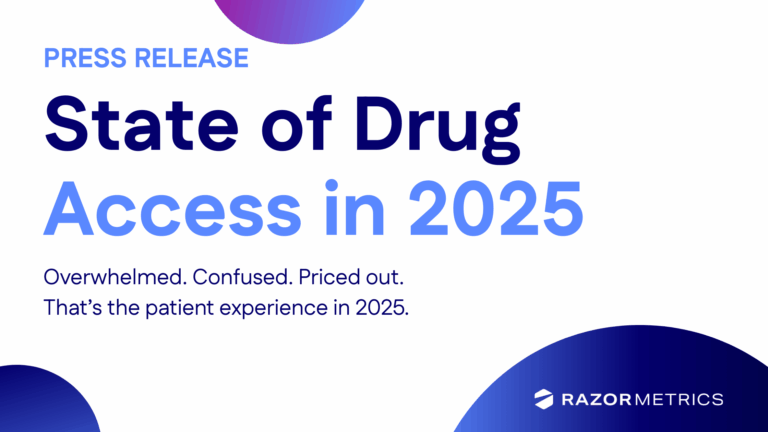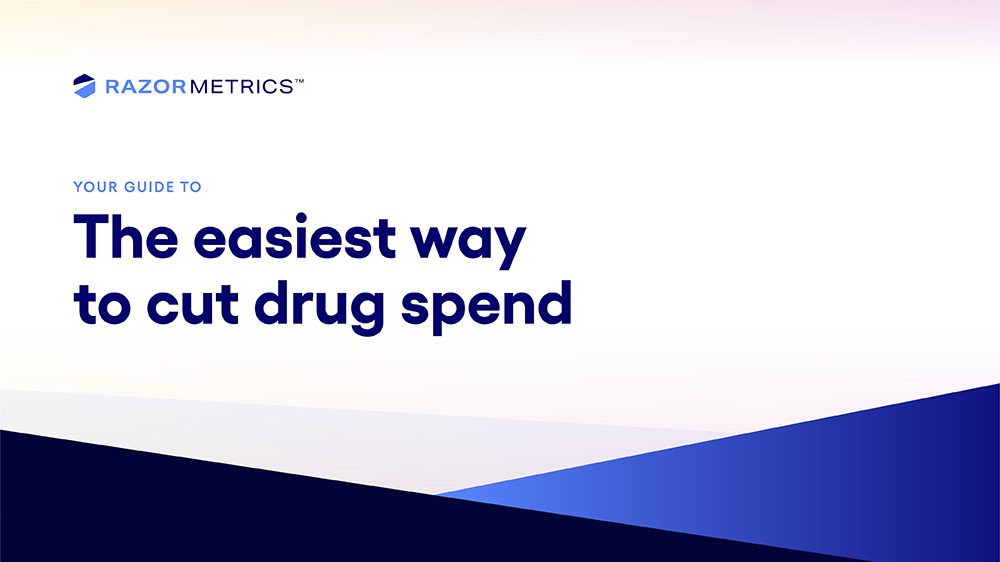A recent survey by the Commonwealth Fund is downright embarrassing. Compared to nine other high-income countries, the U.S. stands alone in its wide disparity in healthcare access, both within the country between lower and higher-income individuals and also between high-income people in other countries.
The Commonwealth Fund surveyed adults in nine countries with high GDPs, including Australia, Canada, France, Germany, New Zealand, Netherlands, Switzerland, the U.K., and the U.S. The results are disturbing. According to the survey,
- Adults in the U.S. with low to average incomes are more likely to skip needed medical care and have problems paying medical bills than all other countries in the analysis.
- In the U.S., adults with higher incomes are more likely to have healthcare affordability problems, including cost-related access issues and medical bill problems, than their counterparts in most other countries.
Cost-related barriers to healthcare set the United States far apart from its peer nations. A staggering 46% of surveyed U.S. adults with average or lower incomes reported forgoing medical care in the past 12 months due to financial constraints. This figure surpasses other affluent countries, with New Zealand trailing behind at 34%. The rates reported in the U.K., Netherlands, Germany, and France were substantially lower, emphasizing the issue’s magnitude within the U.S.
Figure I: Percent of adults who skip or delay getting needed health care due to cost.

Source: Commonwealth Fund 2023 International Health Policy Survey
The disparities in healthcare access extend beyond medical care alone. The survey highlights significant income-related gaps in the United States’ dental and mental healthcare access. Regarding dental care, 46% of low or average-income Americans reported skipping treatments due to costs, more than double that higher-earning populations reported (24%). The income divide in mental healthcare access showed a similar picture. Twenty-one percent of low or average-income individuals avoided mental healthcare services due to costs compared to 14% among higher-income respondents.
As the survey clearly reveals, average Americans are struggling with healthcare disparities, and there is an urgent need to alleviate the burden of exorbitant drug costs.
The critical focal point for RazorMetrics is directly engaging physicians to prescribe the most affordable medication for their patients and our clients’ members/employees. No other drug cost solution works through the physician to improve formulary adherence to lower pharmacy costs. Contact us today to help you bridge the gap in healthcare disparities.




